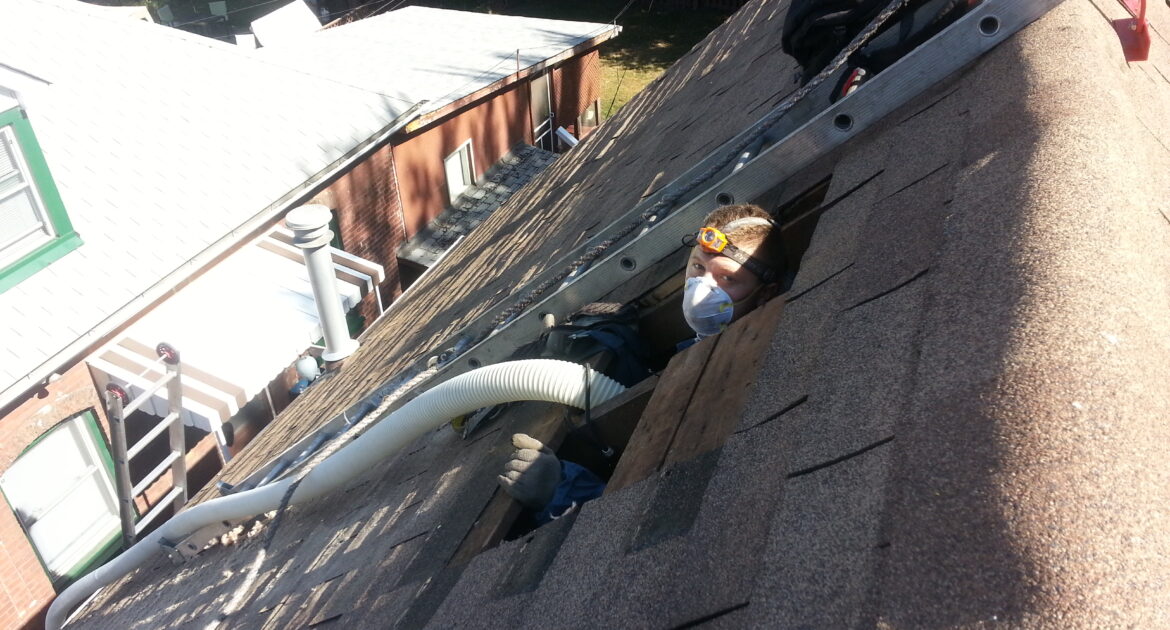In Canada, bats, skunks, and foxes most often transmit rabies. Specifically in Ontario, there hasn’t been a documented case of rabies in a raccoon for nearly 10 years. That all changed on Friday, December 04, 2015, after a fight between two Ontario dogs and an aggressive raccoon in the back of an animal control van. Testing confirmed the raccoon had rabies, a viral disease that attacks the central nervous system. As a result, homeowners should be on the lookout for a raccoon with rabies.
How Does a Raccoon With Rabies Behave?
You should never approach wildlife, even if they seem healthy. In most cases, animals fear humans and run away if they approach, though a cornered critter may attack to protect themselves. However, wildlife suffering from rabies often behaves strangely, making it even more dangerous to approach. As a result, it’s essential to learn how to tell if a raccoon has rabies, especially if there are other cases in your area.
Paralysis is a common symptom of rabies, so infected animals may have difficulty walking. Dragging feet can be signs of rabies in a raccoon, though there may be other causes. For example, animals sometimes sustain injuries during fights that cause a limp; if the wound doesn’t heal correctly, they may have difficulty walking.
However, there are other raccoon rabies symptoms that rarely have another explanation. The first that comes to mind is foaming at the mouth, an image strongly linked to rabies due to depictions in popular culture. Strange noises are another warning sign. Raccoons make several natural noises:
- Screeching
- Purring
- Whimpering
- Chittering
- Hissing
- Snarling
- Growling
However, a raccoon sick with rabies will make unusual sounds, such as high-pitched peeping.
The raccoon may also seem disoriented. A degenerating nervous system means these animals may not know where they are or how they got there, leading to confusion and fear. Since raccoons are intelligent critters, they normally appear focused and curious — acting confused is a very bad sign.
Why Are They Dangerous?
The rabies virus infects mammals, including cats, dogs and humans. Bites and scratches can transmit the virus, which is why experts advise individuals to stay away from wildlife. In humans, the disease can take two to 10 days to run its course. During this time, patients usually experience the following:
- Insomnia
- Hydrophobia
- Delirium
- Hallucinations
- Abnormal behaviour
Once clinical signs appear, rabies is almost always fatal in animals and people.
The good news is that even if you get bitten by an infected animal, you can prevent the disease from progressing. Rabies has a long incubation period (up to a few months), which gives you time to get a rabies vaccine. If a rabid animal injures you, you should seek medical attention immediately, as the sooner you receive the vaccine, the better.
How Can You Keep Raccoons Off Your Property?
You may not go looking for these furry bandits, but they may find you as they search for shelter, food and water. Raccoons are very comfortable in urban environments, and their ingenuity and opposable thumbs help them get into places other animals can’t. To keep them off your property, you need to take preventative measures. Fortunately, wildlife control professionals can help you identify points of entry and factors that may attract raccoons.
Points of entry are holes in your house’s defence. For example, raccoons can squeeze through gaps in your roof or uncapped vents. A wildlife control professional can spot and plug these spots to keep a variety of critters out of your attic.
Experts can also offer advice on keeping raccoons from visiting your property in the first place. One important step is eliminating potential food sources. For instance, if you leave food outside for your pet, raccoons may eat it instead and return in hopes of more.
What Should You Do If You See a Raccoon With Rabies?
Rabies is a reportable disease under the Health of Animals Act. You should report any suspected cases to the Canadian Food Inspection Agency (CFIA), which can verify the virus in its laboratory. Anyone who believes they had contact with the sick raccoon should contact a professional right away.
Even if you encounter an animal that seems fine, you should still call raccoon removal experts, such as Skedaddle Humane Wildlife Control. Our professionals can safely relocate raccoons and clean up the dens and latrines left behind. Both pose serious health risks, so you should never touch them. If you suspect you have raccoons on your property, contact Skedaddle Humane Wildlife Control by phone or visit us online. Protect yourself and your family from a raccoon with rabies.




